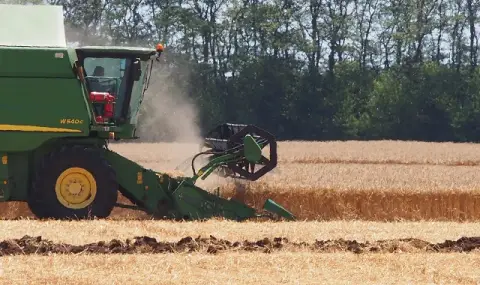EU yield forecasts have been revised downwards for almost all crops due to extremely hot conditions in the south and excessive rainfall in the north, the August edition of the European Commission's Joint Research Center (JRC MARS Bulletin) for monitoring of cultures in Europe, writes BTA.
The downward revision of the forecast for summer crop yields (in particular grain maize and sunflower) is mainly due to the extremely high temperatures that occurred during the period under review in most of southern, central southern and eastern Europe. Summer crops are particularly affected in regions where hot conditions coincide with limited water availability, as is often the case in Hungary, Romania, Bulgaria and Greece.
Heavy rainfall has affected winter crops in the north
The poor performance of winter cereals (in particular common wheat and winter barley) was mainly due to the excessively wet conditions that affected large parts of western and northern Europe. During the current review period, this applies in particular to the Baltic States, where extremely intense rainfall has led to lodging and reduced grain quality, significantly reducing previously positive yield expectations.
Frequent but less extreme rainfall is also hampering harvests in northern France, the Benelux countries and northwestern Germany, where winter crops have already been affected by excessively wet conditions for most of the season.< /p>
